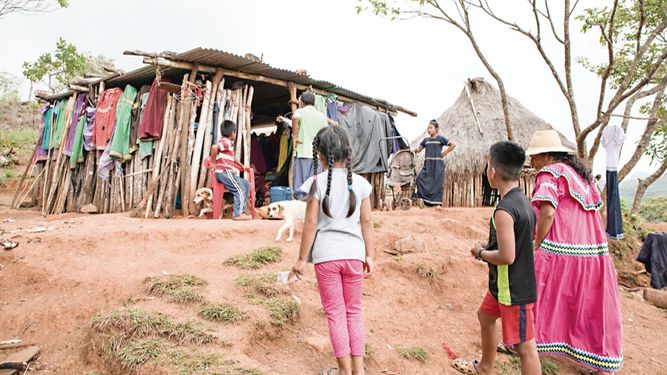2nd health strike kills 4 in poorest community

The second epidemiological outbreak in three months in Panama’s poorest community has claimed another four lives on top of the 11 have who died from whooping cough in the Ngäbe Buglé comarca The enteric fever syndrome, characterized by fever and gastrointestinal symptoms has been identified by the Ministry of Health I (Minsa)I in the comarca.
The Ministry of reported that they are currently investigating the family outbreak of the syndrome in the community of Quebrada Negra, Piedra Roja district, Kankintú district, which due to the seriousness of the cases has caused four deaths, of which three are children (two, 3-year-olds and one 7-year-old.) The other is an adult.
“Both with the outbreak of whooping cough and the enteric fever syndrome, Minsa has taken the necessary measures to avoid an increase in cases.” Said a Ministry statement which also reported four cases of people hospitalized, two minors and two adults.
Piedra Roja is a community of 3,883 people and 97.3% of the population lives in poverty., and there are only two Minsa health facilities, according to a Report on Poverty and Inequality in Panama of the Ministry of Economy and Finance and the World Bank published in May 2017.
The Minister of Health, Miguel Mayo, said that in all cases the entity, through the epidemiological surveillance system, acted immediately and took the necessary measures to prevent an increase in cases.
Currently, Minsa officials are monitoring patients and close relatives, and laboratory tests applied by health personnel were sent to the Gorgas Memorial Institute of Health Studies to investigate if the source of the outbreak is due to viral or bacterial causes, reports La Prensa.
Ricardo Miranda , president of the Council of Ngäbe Youth, said that the situation that occurs in the region is a product of oblivion by governments.
He said that health authorities should not wait for alerts to occur and then tour and vaccinate, but should constantly be in the mountain ranges and areas of difficult access.





